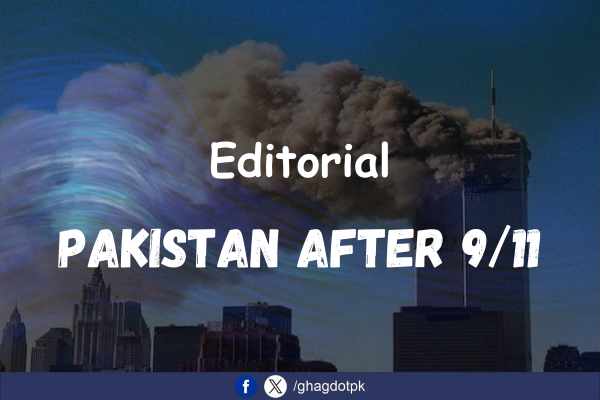Al-Qaeda launched extreme attacks on the United States, the lone superpower in the world, on September 11, 2001. The world witnessed America’s humiliation as American intelligence institutions were destroyed and passenger planes were hijacked. Osama bin Laden, who was controlled by the Taliban regime in Afghanistan, was allegedly responsible for all of this. Not only was the 20-year NATO-led war on Afghanistan enforced shortly after, but Pakistan was also forced into an extremely complicated conflict, the ramifications of which are still being felt in Pakistan today in the form of extreme terrorism, even after the US withdrew and the Taliban re-established their authority.
The Taliban and their allies started to regroup and mobilize after 2004, and they resisted the United States and NATO for a long time in such a way that under the Doha Agreement on August 20, 2021, these major powers once again had to flee by handing over Afghanistan to the Taliban. After 9/11, the United States’ attention was solely focused on military operations, and its imposed Afghan rulers were unable to win the support of the populace. There were no Pakistani or Afghan participants in the 9/11 twin attacks. All of them were Arabs, but the two countries had to face serious consequences and when the Afghan Taliban government was re-established, the war fought in Afghanistan moved to Pakistan and at present, undoubtedly, Pakistan’s two border provinces, Khyber Pakhtunkhwa and Balochistan, are in the grip of a bilateral war.
US documents estimate that over the 20-year conflict, 19,000 US and NATO soldiers and other people died and 40,000 were injured. Reports state that the war cost the US and its allies anywhere from $3 trillion to $4.5 trillion. However, over 80,000 people died in Pakistan, including roughly 18,000 military soldiers and officers. The worst part is that Pakistan has not only lost credibility in the eyes of the world but despite all of its losses and sacrifices, peace has not yet been established. As a result, after August 2021, the Pakistani state will embark on yet another critical phase in its fight against terrorism. The country’s economy and society have also suffered enormous damage.






